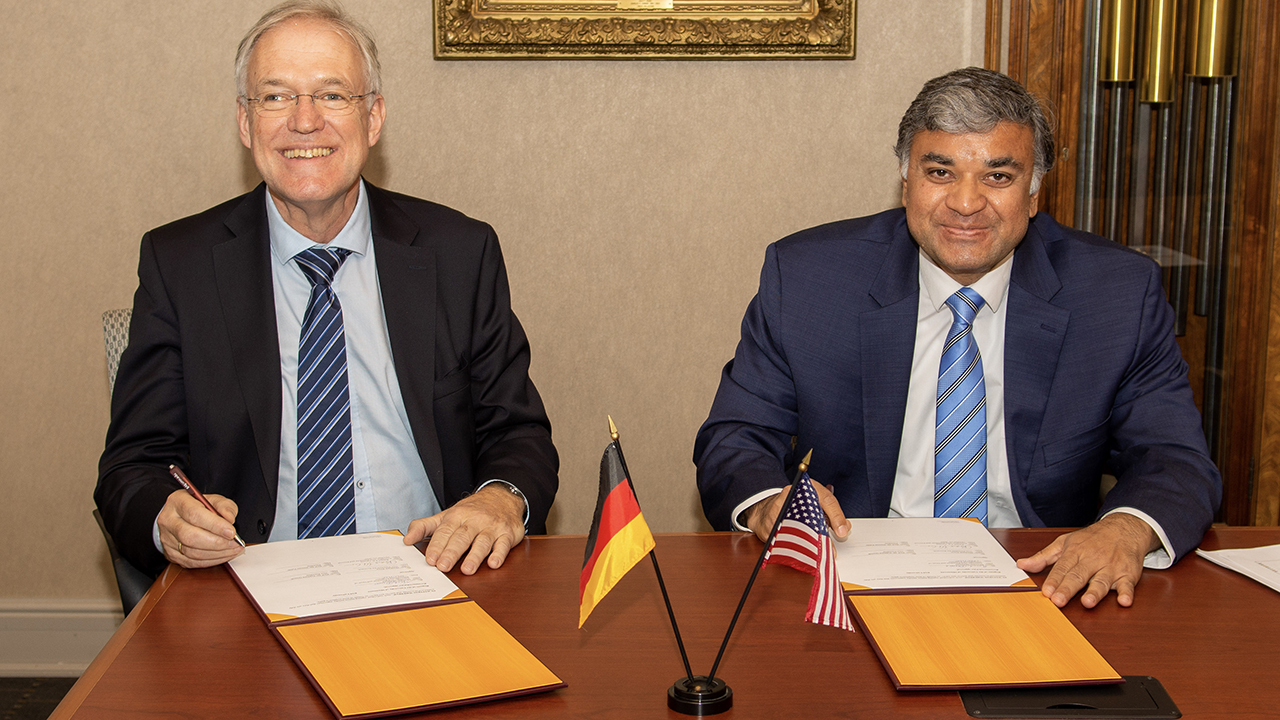
Eckhard Quandt and Shashank Priya sign a memorandum of understanding.
The University of Minnesota and Kiel University formalized a collaborative relationship on November 1, 2022 when UMN Vice President for Research (VPR) Shashank Priya and Kiel University Vice President for Research, Transfer, Scientific Infrastructure, and Digitalisation Eckhard Quandt signed a memorandum of understanding. This agreement opens the door for faculty and student exchanges and joint activities, including conferences and symposia, and will facilitate knowledge transfer at a faster level.
“We are excited to move forward with this agreement and to leverage our joint academic strengths in areas such as neuromorphic computation and solid state brain imagery, in which Kiel University is a field leader,” VPR Priya said at the ceremony. “Having visited Kiel University, I know that it is a scientific leader in Germany, Europe, and the world.”
Located on the northern coast of Germany, Kiel University, which dates back to 1665, has four priority research areas: marine science; life science; societal, environment, and cultural change; and nano, surface, and interface science. The university is also prioritizing further development as an international network university, building on existing strategic international partnerships with this formalized agreement with UMN.
“Extending our international network with such a strong US-based partner contributes to our strategic goal to become an international network university,“ said Eckhard Quandt. “Scientists will be presented the opportunity to closely collaborate with their fellow experts from one of the leading universities in the United States. Students will be able to gain international experience and extend their knowledge while studying abroad. This collaboration positively impacts our profile of being a major research facility in Schleswig-Holstein and Germany. Hence, we are more than delighted to form and further grow this partnership with the UMN.”
This relationship with Kiel University will be especially beneficial as UMN develops the International Institute for Biosensing, which will focus on an area of rapidly growing interest across the globe as people increasingly monitor for harmful chemicals and biological agents in their environment. Priya hopes that UMN researchers will be able to visit and leverage research being conducted at Kiel University’s state-of-the-art biomagnetic sensing and neurotronics collaborative research centers.
“We are glad to offer new avenues and welcome new opportunities availed by our colleagues at Kiel University,” said Vice Provost and Dean of Graduate Education Scott Lanyon. “Specifically, for our students, we know that agreements and collaborations like this provide incredible education benefits for a globally connected world; that student exposure to innovative research in their domain increases their awareness and ability to interact with their future career; and that student exchanges build networks of professionals.”